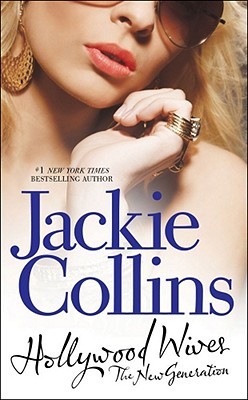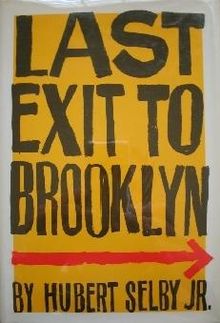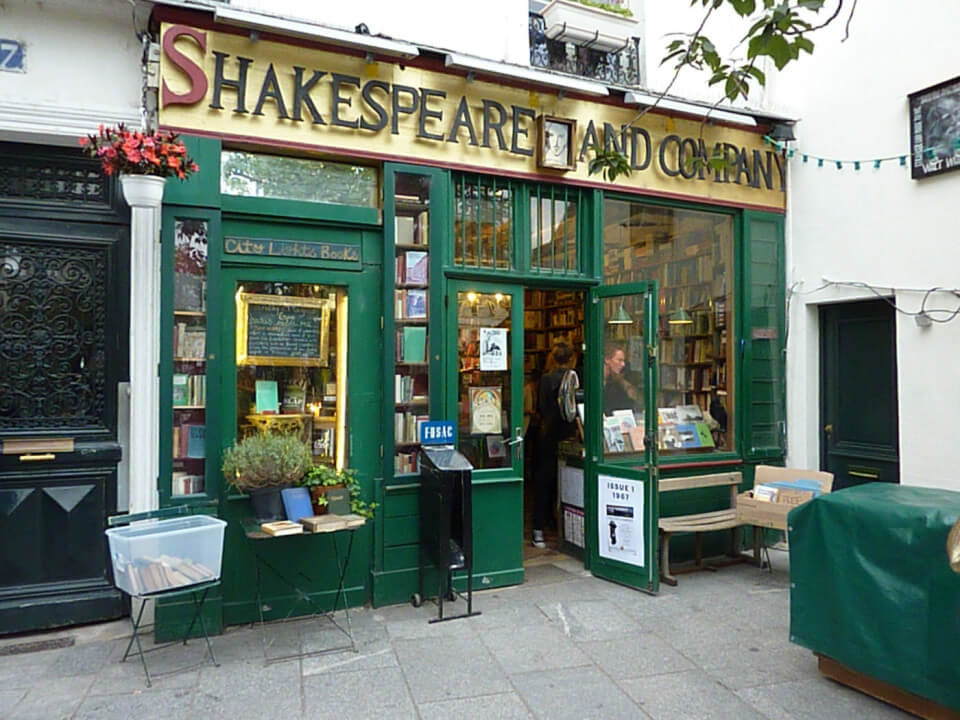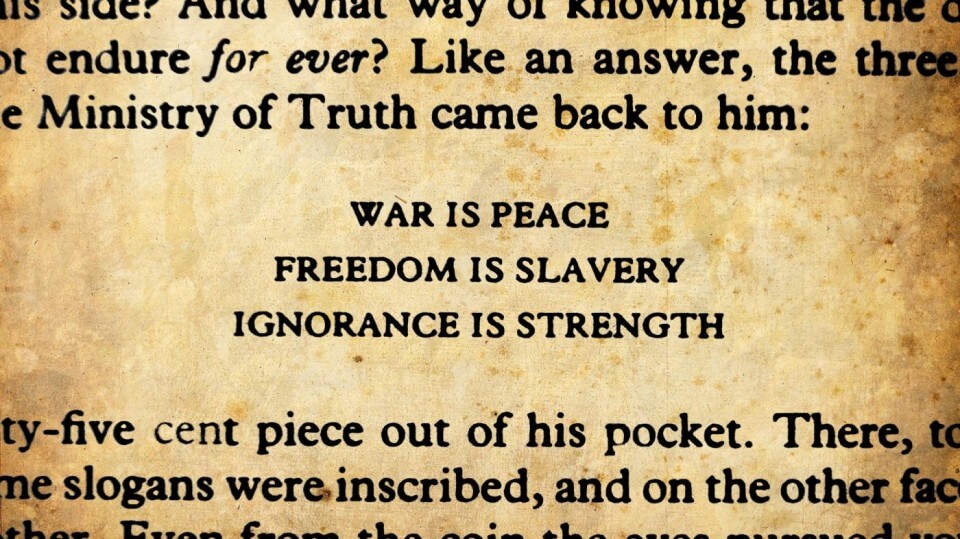Ricochet is the best place on the internet to discuss the issues of the day, either through commenting on posts or writing your own for our active and dynamic community in a fully moderated environment. In addition, the Ricochet Audio Network offers over 50 original podcasts with new episodes released every day.
 What was Your First Forbidden Book?
What was Your First Forbidden Book?
 Jackie Collins has died at the age of 77.
Jackie Collins has died at the age of 77.
Properly speaking, she was a writer of no talent whatsoever, and certainly of no interest to those of us who have gathered here to discuss conservative politics. As The New York Times explains, “She wrote more than 30 books, many of them filled with explicit, unrestrained sexuality, and sold more than 500 million copies worldwide. Her first novel, “The World Is Full of Married Men,” was published in 1968. Australia and South Africa banned it because of its frank depiction of extramarital sex. Other earlier works included “The Stud,” in 1969, and “Rock Star,” in 1988.”
No, Jackie Collins is not especially relevant to the concerns of Ricochet.
And indeed not relevant to my concerns, either — except that for a moment, when I read that she had died, I confused her name with that of Jacqueline Susanne, author of Valley of the Dolls, and a rush of memories came back to me.
Mind you, Susanne died in 1984 and is of even less interest to anyone here than Jackie Collins:
Valley of the Dolls is a novel by American writer Jacqueline Susann, published in 1966. The “dolls” within the title is a euphemism for pills, and was created by Susann. The term dolls also represents the women in the novel and their mishandling by the patriarchal world in which they are “played” by and dealt with as mere toys. The term also represents the women’s reliance on stimulants, depressants, and sleeping pills, and how substance abuse is reminiscent of children clinging to toy dolls for comfort. …
The book’s narrative is direct and often blunt in confronting social issues such as non-marital and extramarital sex, abortion, mental illness, shunning and shaming, patriarchal male sexism, the “Casting couch,” elitism, male homosexuality, lesbian sex, and classism. It contains profanity, obscenity and sexual slurs, including gay men being referred to as fags.
There is not one word of redeeming literary, moral, or cultural merit in that book. I know that for sure.
But when for a moment this morning I thought she had died — forgetting that in fact she was long since dead — I was saddened. For you see, Valley of the Dolls was the first book I was ever forbidden from reading. And in forbidding me from reading Valley of the Dolls, my father taught me lessons about literature that shaped my life.
 Now — technically, truthfully — Valley of the Dolls was the second book I was forbidden from reading. I was forbidden from reading the first when I was about eight years old. My father had been reading Last Exit to Brooklyn, and it was on the living room coffee table. I picked it up out of curiosity. My mother hadn’t read it, didn’t know what it was about, and thought my precocity in wanting to read a grown-up book like that both adorable and a sign that I must be very gifted and special. As mothers will.
Now — technically, truthfully — Valley of the Dolls was the second book I was forbidden from reading. I was forbidden from reading the first when I was about eight years old. My father had been reading Last Exit to Brooklyn, and it was on the living room coffee table. I picked it up out of curiosity. My mother hadn’t read it, didn’t know what it was about, and thought my precocity in wanting to read a grown-up book like that both adorable and a sign that I must be very gifted and special. As mothers will.
My father, on the other hand, had been reading it. He knew better.
I remember the whispered words “She shouldn’t be reading that, Toby,” followed by an even-more-whispered explanation of what I’d find if I did. I wasn’t supposed to be able to overhear that, but I recall it distinctly, even now. I won’t say what it’s in it: Perhaps some of you might wish to discuss this post with your own kids. An effort to distract me followed. It involved a promise of letting me watch television in the afternoon, which usually I wasn’t allowed to do unless I was sick.
I later (of course) snuck back into the living room, found the book, and read it. I’d never have made it past the first page had I not been told I was too young for it, and I was too young to understand any of it. I went back in adulthood and read it again, though, and my father was right: Not for kids — no way, no how. Still, since I didn’t understand it at all, it did me no lasting harm.
But the fight we had about Jaqueline Susann had a lasting impact. I was eleven by then, approaching puberty and on the verge of full-on adolescent rebellion. My father was taking his sabbatical year in Paris. We were on our own; my mom had stayed behind in Seattle. It was 1979, well before the Internet Age. Every week, my Pop would take my brother and me to Shakespeare and Company, the famous bookseller by the Seine, and we’d get to choose a few books to keep us busy all week.
about Jaqueline Susann had a lasting impact. I was eleven by then, approaching puberty and on the verge of full-on adolescent rebellion. My father was taking his sabbatical year in Paris. We were on our own; my mom had stayed behind in Seattle. It was 1979, well before the Internet Age. Every week, my Pop would take my brother and me to Shakespeare and Company, the famous bookseller by the Seine, and we’d get to choose a few books to keep us busy all week.
While he and my brother were browsing the other shelves, I opened Valley of the Dolls — which was on prominent display — and was hooked from the first page. I’d never read anything like that before. So when it came time to ring up our purchases, I trotted over with my fascinating new find. My father took one look, curled his lip in disgust, and said, “No.”
“Why not?”
“Because it’s dreck.”
I was shocked. Like most upwardly-mobile, middle-class parents, mine had taught me that reading was inherently good. The more I did of it, the happier they would be. It had not occurred to me before that day that this was only true of some books. I did not know that others might be dreck.
We had a fight in the bookstore that resulted in tears (mine). I refused to select another book. I sulked for an entire week. We had long discussions that week about why some books were literature and others dreck. “The only talent Jaqueline Susann has,” my father said, “is for putting words on a page, one after the other.”
When we returned the following week, my father chose the book I was to read. “Take this,” he said, giving me a copy of 1984. “Then you’ll understand the power of literature.”
He was correct about that, as he tends to be on all matters literary.
I don’t remember how, but somehow I managed to get my hands on a copy of Valley of the Dolls, as well as everything else Jaqueline Susann had ever written. My father’s fear that I’d get hooked on dreck — presumably moving from the gateway dreck of Valley of the Dolls to binge-watching The Apprentice — proved unfounded. When I saw that Jackie Collins had died — and before I remembered which dreck-writer was which — I went back to look up Valley of the Dolls. I’d forgotten every word of it.
 Yet I remember every word of 1984.
Yet I remember every word of 1984.
I guess the lesson — if there is any — is that the fastest way to get a kid to read a book is to ban it. But they’re going to read it anyway, so you may as well explain, in detail, why the book is dreck, give your kid a good book to read instead, explain why the good one is literature, and wait until your kid is nearly fifty, at which point, she’ll think, “Thank you, Pop, for teaching me the difference between literature and dreck.”
So, what was the first book you were forbidden to read? How does it stand up to time? What books do you forbid your kids from reading now?
Published in Culture, Education, General, Literature



double post
I’ve always seen Romeo and Juliet as an inoculation against suicide. The foolishness of Romeo’s despair became so obvious to me when we watched the movie in high school. All could have been well, if only he had waited.
It was an epiphany.
Shakespeare teaches kids the finality of suicide. Weird, but they don’t naturally get that aspect of it.
I’ve never read the play, so maybe that is why I have a different view.
Some kids react that way to it.
Healthy kids do.
But in a public setting, you don’t know what the kids are dealing with inside themselves.
A tremendous number of teenagers are on antidepressants, probably in some cases for good reason.
Suddenly today on Ricochet, I feel foolish bringing up my concerns. But when I’ve raised my concerns with high school teachers in my school district and with parents in casual conversation, they have understood right away why I worry about this. Perhaps it is a local issue. Or my friends are just being nice to me. :)
Well, ahem, Tom does jump into a haystack where is a smiling farm girl. You were more innocent even than I, if you did not notice that. Or maybe you were raiding the refrigerator at the time. We all missed things when we failed to match our activities with the rhythm of the TV advertising schedule.
That horrible woman taught you more than she knew. She sparked your independent spirit into long life. I hope you acquire the entire series.
Maybe it was the the trilogy by Mary Jane Auch. First came Journey to Nowhere.
Then there were Frozen Summer and The Road to Home.
There’s interlibrary loan and there’s ABE Books. Go for it, James Gawron! Show that hatchet-face who shall have the victory!
May Jackie Collins rest in peace.
I did my master’s thesis on DH Lawrence. A number of his novels were “forbidden” but frankly they are relatively tame compared to what’s out there.
Actually as I think of it, Huckleberry Finn was banned in a number of places in its day. The relationship between a white boy and a slave in a sort of blood brotherhood escaping society was not appreciated.
Dreck? Midsummer Night’s Dream is a great work. But to answer your question, Twelfth Night is a wholesome play. As You Like It is another. Also some of the late Romances are wholesome. The Winter’s Tale and The Tempest for sure.
As I ponder it, I have no idea what dreck means. ;)
Nothing was banned in my house. My mother’s philosophy was if we didn’t understand it there was no harm and if we did it was too late.
She caught me reading a Playboy one night when I was about 14. She looked at my terrified teenaged face and deadpanned, “You’ll love the articles.”
It still is.
That’s one I want to clean up and bring back.
I read it just a few years ago because I was curious to know why it had been banned from schools. Clearly, it is the language. It is hard to read because of it.
But there is an important message in that book for kids who are alone in the world and sometimes dealing with ill adults around them.
I think a lot of kids need that book.
It’s really about a poor black kid alone dealing with the rest of the world of crazy adults.
I really wish they would clean it up and let kids read it. Some kids need to know they aren’t the first kid who ever had to deal with dysfunctional adults. It might be cathartic for them.
But that’s just me.
MarciN, we prevent an understanding of the past when we “clean books up”.
You were reading it?
Re 101
Had a little too much wine while cutting these apples to make a vat of sauce.So, missed the tongue in cheek quality of your comment the first time I read it.
A friend of mine that subscribed liked to say “I only buy them for the naked women”.
My granddaughter married a black man, and has 4 beautiful black children I adore. I also as a child loved the tales of Uncle Remus and Brer Rabbit. I found a reprint of the original copy my grandmother read to me, and gave it to her to read to her children. I also gave her a book of Mark Twain with both Huckleberry Finn and most of his other tales. In black culture, among themselves, the N-word is not an insult.
The pictures have captions, you know!
My first ban was “anything cowboys and Indians.” But it had nothing to do with the stylish “cultural sensitivity” of today.
It was about 3rd grade, and I was a voracious reader. I had gotten into a significant cowboys and Indians kick. One day, Mrs. Peacock, the school librarian, took a look at my library card and forbade me from reading any more cowboys and Indians until I had read books from several other areas of the library. But I didn’t want to read other books. An absolute Mjölnir blow to enthusiasm. Couple that with Miss Barefoot insisting that I join the Reading Circle in class for a book I had already finished (“It might make the others feel bad if you don’t join us.” – many decades before that was a core educational goal), well my reading enthusiasm went absolutely *THBBFT*.
I got into my cowboys and Indians kick about 4th grade. You just needed to find a different source for your books. I had a thing about Roy Rogers and Trigger.
By 2nd grade I was reading East O’ the Sun & West O’ the Moon, a Norse tale translated by Sir George Webbe Dasent, in a fairy tale book. I found an edition of the story that was illustrated by Gillian Barlow published in 1988 so have the story in my library. However the illustrations are very similar to those I remember from 1945.
When I saw the reviled “Song of the South” as a child, I remember thinking “I wish there was a guy in my neighborhood that was as nice to kids as Uncle Remus.
Mister Bluebird on my shoulder…
I’ve never been forbidden from reading any book as a kid, but my mom did forbid us from watching Married With Children. We found a loophole on that ban because we would just happen to be in the room when my dad was watching it. But I do think I may put a ban on my kids from reading the 50 Shades of Gray or twilight series. That is pure dreck.
Flowers for Algernon. We read the cleaned up short story version in eighth grade English class. I checked out the novel from the school library and told my parents that it was assigned, so as to avoid their scrutiny. Not that it was necessary. The naughty bits are pretty tame and my parents were more accepting of “adult” content in literature than in movies, music, etc.
One of these days I’ll get around to reading the works of de Sade. I’m sure my parents would still disapprove of my reading that.
Funny thing, my dad owns a collection of Mad Magazine that I loved to read as a kid. My dad is a devout Mormon and Limbaugh-listening conservative.
Roger Ebert said the movie parodies in Mad introduced him to film criticism. Speaking of Ebert, he had this to say of Jacqueline Susanne:
My parents never specifically banned a book from me, but when I was in seventh grade my little sister was playing in my room while I was at a friend’s house and discovered I had a Stephen King book under my mattress, which I had borrowed from another friend. Sometime before this I was in the library with my mom and I think that friend, and as we were at the horror rack my mom said “no horror”. So that later made me want to hide that book, though it was actually a fantasy book from him, The Eyes of the Dragon, and was fairly mild. I wasn’t in trouble, and I remember my dad telling me I shouldn’t be afraid to ask him about something like that.
I tried reading The Taking of Sleeping Beauty by Anne Rice. It got really boring after the premise is set up in the first chapter. So clinical. But then, that may have been the point.
I tried reading Lady Chatterley’s Lover, but gave up due to extreme boredom and utter lack of interest in the petulant heroine. “Wah, wah, I’m rich but my husband is boring because of his war injuries. Pity me!” The only way that book has any value is if you assume that Lawrence wants the reader to despise the protagonist.
I did enjoy Valley of the Dolls when I read it a year or two ago. It wasn’t nearly as trashy as I expected. Compared to some of the true stories of classic Hollywood, it was downright tame.
Some are better than others. The 100 Days of Sodom gets a little too disturbing, but some of his stories have an interesting political bent, considering the age in which they are written (the French Revolution).
You might enjoy Sacher-Masoch (from where we get the term “masochism”) more than Sade (from where we get the term “sadism).
Where Sade seems to hate everyone around him, Masoch seems to love too much.
Aside from a book about Jack the Ripper that I read in junior high, most of the books I’ve read never invited scrutiny from my parents. My dad scrutinized my TV habits, (he wasn’t too keen on Ren and Stimpy). When I grew up, it became a running joke between me and him, He would walk into the room when I was watching TV and facetiously remark, “Well, this looks like an uplifting TV show!” It used to annoy me, but I miss it now that he’s gone.
Really? I never noticed…
I read that book in college, it made the rounds on my floor when someone would read it and run next door and say “you HAVE to read this book”. It was definetly more due to the shock value than anything literary or intellectual, but we had fun reading passages to each other and giggling about them.
My folks had a pretty full library–we were stationed overseas regularly–and they had typical Book of the Month club stuff. John Updike’s Rabbit series was eye opening for this 10-year-old. My folks got the second book in the mail while we were posted in Panama.